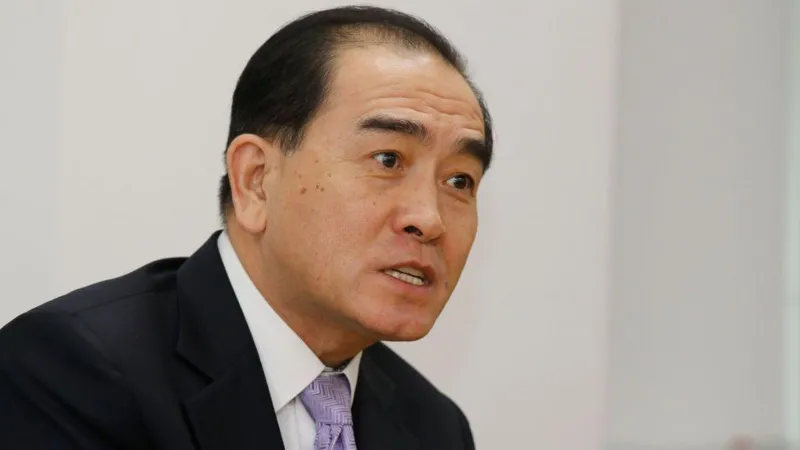Former North Korean diplomat Tae Yong-ho has been appointed as South Korea’s new leader of the presidential advisory council on unification. This makes him the highest-ranking North Korean defector in South Korea and the first to get a vice-ministerial position. Tae, 62, was a deputy ambassador for North Korea in the UK before he defected to South Korea in 2016. North Korea has called him “human scum” and accused him of crimes, including embezzlement.
Tae was the first North Korean defector elected to South Korea’s National Assembly in 2020. Although he did not win a second term in April’s election, he will now advise President Yoon Suk Yeol on policies for peaceful Korean unification. The presidential office believes he is well-suited for this role due to his experience and commitment to democracy.
Born in Pyongyang in 1962, Tae spent almost 30 years working for the North Korean government before defecting. He left because he wanted a better life for his children and was unhappy with Kim Jong Un’s regime. In his recent memoir, he criticized the North Korean elite and their personality cult around the Kims. Since defecting, he has advocated using “soft power” against the Kim regime and has supported prisoner swaps between the Koreas.
Tensions between North and South Korea have increased recently, with South Korea resuming propaganda broadcasts in response to North Korea sending balloons into the South. Satellite images also suggest that North Korea may be strengthening its military and building barriers along the border. As of last December, around 34,000 North Koreans have defected to the South.
Earlier this week, South Korea confirmed another high-profile defection of a former diplomat stationed in Cuba, who left due to disillusionment with the North Korean regime. On Sunday, South Korea celebrated its first North Korean Defectors’ Day, during which President Yoon promised more financial support for defectors and tax incentives for companies hiring them.
This summary is based on information from BBC.
https://www.bbc.com/news/articles/cyj4xjkvweko

